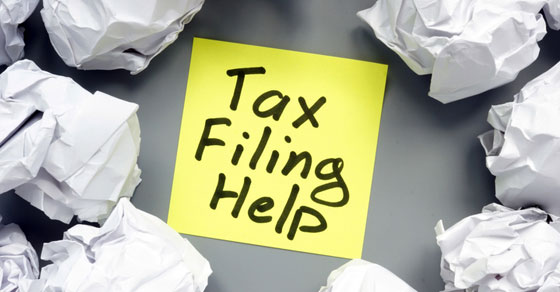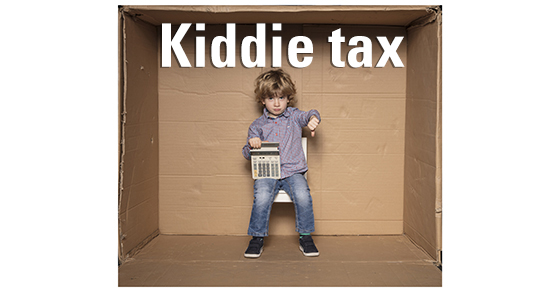Get Ready For the New Form 1099-NEC
 There’s a new IRS form for business taxpayers that pay or receive non-employee compensation.
There’s a new IRS form for business taxpayers that pay or receive non-employee compensation.
Beginning with tax year 2020, payers must complete Form 1099-NEC, Non-employee Compensation, to report any payment of $600 or more to a payee.
Why the new form?
Prior to 2020, Form 1099-MISC was filed to report payments totaling at least $600 in a calendar year for services performed in a trade or business by someone who isn’t treated as an employee. These payments are referred to as non-employee compensation (NEC) and the payment amount was reported in box 7.
Form 1099-NEC was reintroduced to alleviate the confusion caused by separate deadlines for Form 1099-MISC that report NEC in box 7 and all other Form 1099-MISC for paper filers and electronic filers. The IRS announced in July 2019 that, for 2020 and thereafter, it will reintroduce the previously retired Form 1099-NEC, which was last used in the 1980s.
What businesses will file?
Payers of non-employee compensation will now use Form 1099-NEC to report those payments.
Generally, payers must file Form 1099-NEC by January 31. For 2020 tax returns, the due date will be February 1, 2021, because January 31, 2021, is on a Sunday. There’s no automatic 30-day extension to file Form 1099-NEC. However, an extension to file may be available under certain hardship conditions.
Can a business get an extension?
Form 8809 is used to file for an extension for all types of Forms 1099, as well as for other forms. The IRS recently released a draft of Form 8809. The instructions note that there are no automatic extension requests for Form 1099-NEC. Instead, the IRS will grant only one 30-day extension, and only for certain reasons.
Requests must be submitted on paper. Line 7 lists reasons for requesting an extension. The reasons that an extension to file a Form 1099-NEC (and also a Form W-2, Wage and Tax Statement) will be granted are:
- The filer suffered a catastrophic event in a federally declared disaster area that made the filer unable to resume operations or made necessary records unavailable.
- A filer’s operation was affected by the death, serious illness or unavoidable absence of the individual responsible for filing information returns.
- The operation of the filer was affected by fire, casualty or natural disaster.
- The filer was “in the first year of establishment.”
- The filer didn’t receive data on a payee statement such as Schedule K-1, Form 1042-S, or the statement of sick pay required under IRS regulations in time to prepare an accurate information return.
Need help?
If you have questions about filing Form 1099-NEC or any tax forms, contact us. We can assist you in staying in compliance with all rules.



 If you operate a small business, or you’re starting a new one, you probably know you need to keep records of your income and expenses. In particular, you should carefully record your expenses in order to claim the full amount of the tax deductions to which you’re entitled. And you want to make sure you can defend the amounts reported on your tax returns if you’re ever audited by the IRS or state tax agencies.
If you operate a small business, or you’re starting a new one, you probably know you need to keep records of your income and expenses. In particular, you should carefully record your expenses in order to claim the full amount of the tax deductions to which you’re entitled. And you want to make sure you can defend the amounts reported on your tax returns if you’re ever audited by the IRS or state tax agencies.
 Years ago, Congress enacted the “kiddie tax” rules to prevent parents and grandparents in high tax brackets from shifting income (especially from investments) to children in lower tax brackets. And while the tax caused some families pain in the past, it has gotten worse today. That’s because the Tax Cuts and Jobs Act (TCJA) made changes to the kiddie tax by revising the tax rate structure.
Years ago, Congress enacted the “kiddie tax” rules to prevent parents and grandparents in high tax brackets from shifting income (especially from investments) to children in lower tax brackets. And while the tax caused some families pain in the past, it has gotten worse today. That’s because the Tax Cuts and Jobs Act (TCJA) made changes to the kiddie tax by revising the tax rate structure.
 You may have heard of the “nanny tax,” but even if you don’t employ a nanny, it may apply to you. Hiring a housekeeper, gardener or other household employee (who isn’t an independent contractor) may make you liable for federal income and other taxes. You may also have state tax obligations.
You may have heard of the “nanny tax,” but even if you don’t employ a nanny, it may apply to you. Hiring a housekeeper, gardener or other household employee (who isn’t an independent contractor) may make you liable for federal income and other taxes. You may also have state tax obligations.